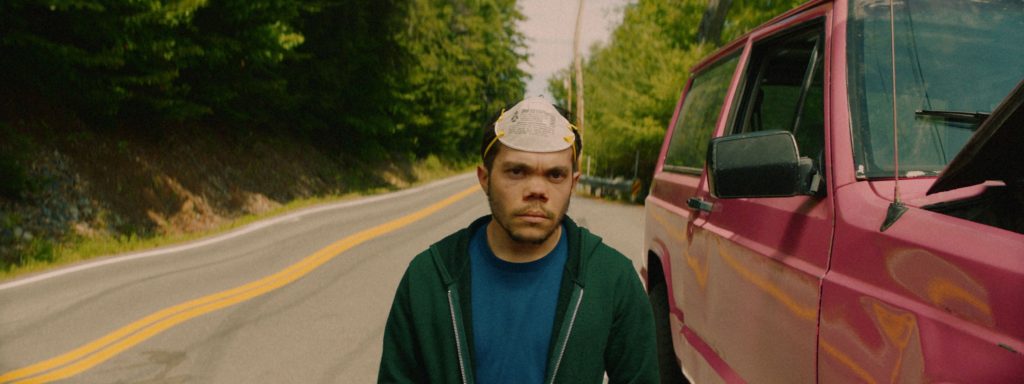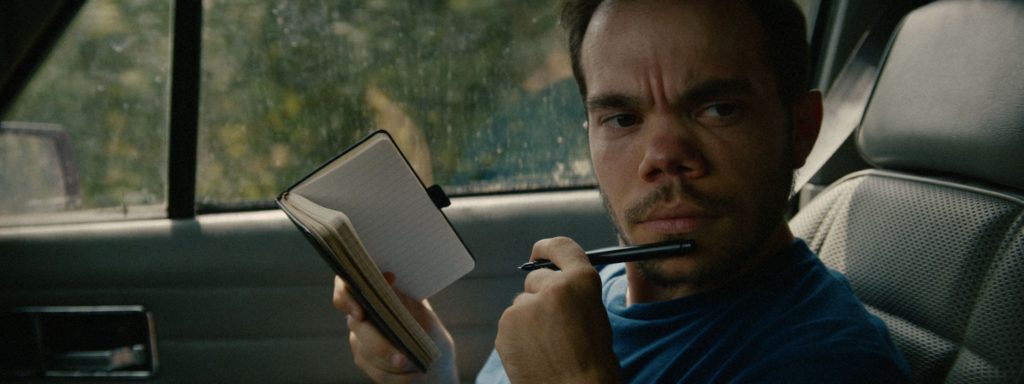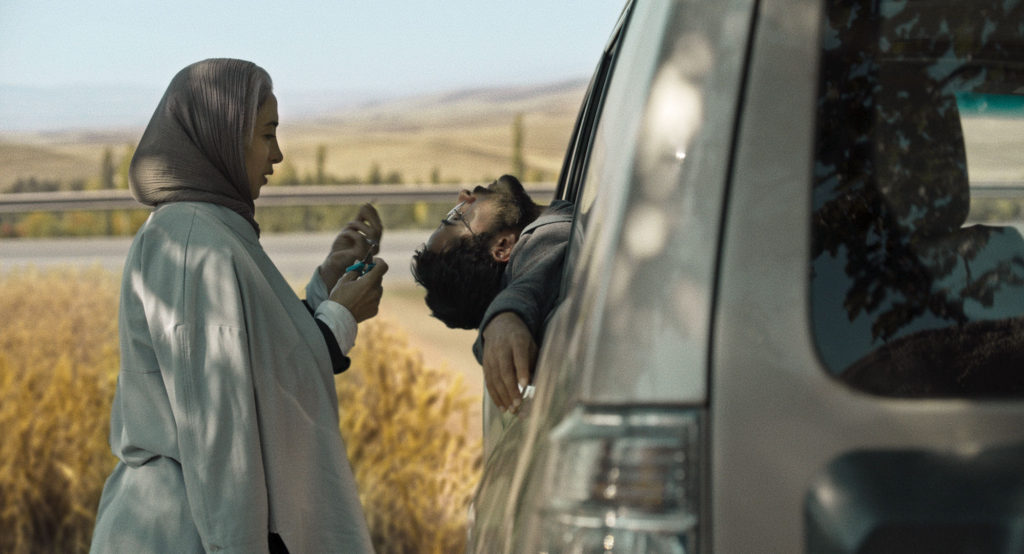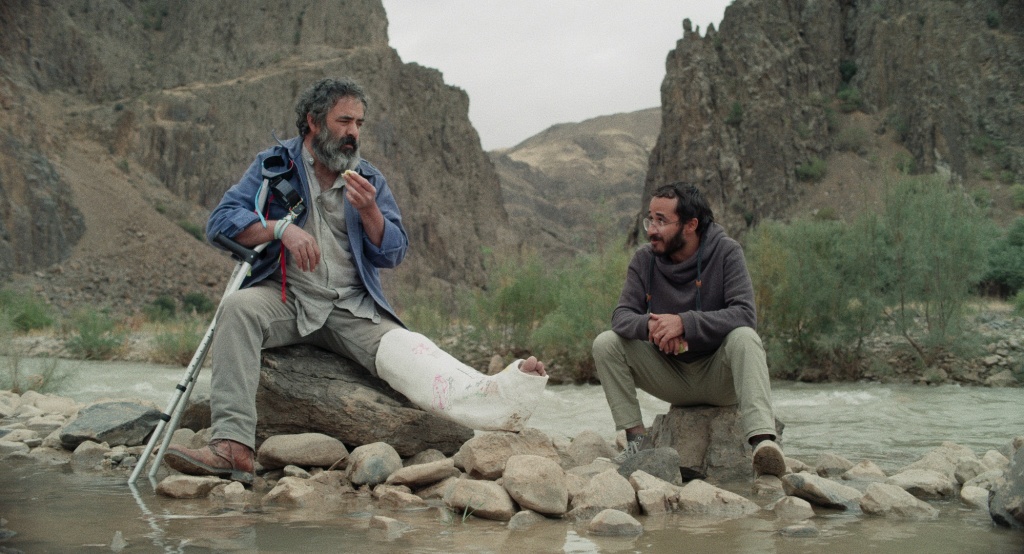
Jesse Eisenberg’s A Real Pain begins as an odd couple comedy and evolves into something much deeper. Cousins David (Eisenberg) and Benji (Kieran Culkin) adored their late grandmother and are honoring her by taking a pilgrimage to Poland to see her homeplace and the Nazi death camp that she survived.
The two forty-year-olds were inseparable growing up, but have drifted apart as adults. David, although he takes medication for his OCD, is highly functional; he has a solid job and lives in NYC with his beautiful wife and adorable son. Benji still hasn’t landed anywhere outside of his family’s upstate basement.
David is a little neurotic and little uptight, but his behavior is well within the normal band; he would be an amiable traveling companion. On the other hand, Benji is erratic, unfiltered and immune to embarrassment and social convention. They have signed up for a guided group tour, and Benji’s unrelenting, inappropriate antics mortify David. To the audience, it looks like Benji is the Real Pain of the title.
But, as the story is unspooled, we learn that Benji is just not quirky – he’s a very damaged human being. His emotional distress is the source of the film’s title. David is frustrated that he cannot fix Benji’s pain, and the ambiguity in the ending is very truthful.
Kieran Culkin’s performance as Benji is extraordinary. He captures all Benji’s charm, impulsiveness, empathy, and profound, underlying sadness.
The rest of the cast is very good, especially Jennifer Grey (yes, THAT Jennifer Grey) as a tour group member and Will Sharpe (White Lotus) as their guide.
Eisenberg wrote and directed A Real Pain as well as starring in it. Eisenberg has said that he was exploring the contrast between “epic pain” (e.g., the Holocaust and its continuing impact) to “more modern pain” (i.e., the real anguish of we who may be hurting personally, but don’t have to worry about survival). The grandmother’s house that David and Benji eventually find is the real former home of Eisenberg’s own relatives.
As a screenwriter, Eisenberg demonstrates real talent for subtlety, in creating a unique character and in exploring sobering topics, leavened with just enough humor. And, as a director, Eisenberg gets some credit for Culkin’s performance.
The soundtrack is almost entirely Chopin, which is both Polish and (vital for indie filmmakers) in the public domain. The Wife found it distracting, and it had a somnolent effect on me.
Watching A Real Pain does not tantalize the viewer into planning a trip to Poland.
Eisenberg’s character David is always wearing a University of Indiana baseball cap. That’s interesting because Indiana is the perennial doormat of Big Ten football and has actually lost more games than any other team in the 140-year history of college football. What Eisenberg could not have possibly known when shooting the film is that Indiana football would be having its best year ever, and, as I write this, is a shocking 10-0.
You might get the impression from the trailer below, as I did, that A Real Pain is lighter than it is. A Real Pain is now in theaters.







